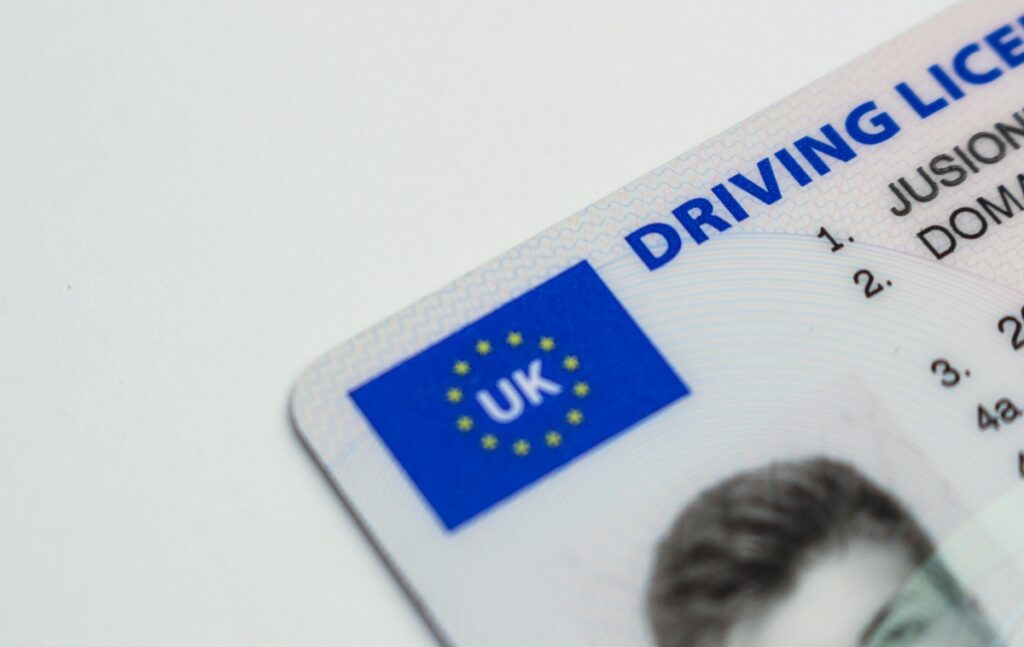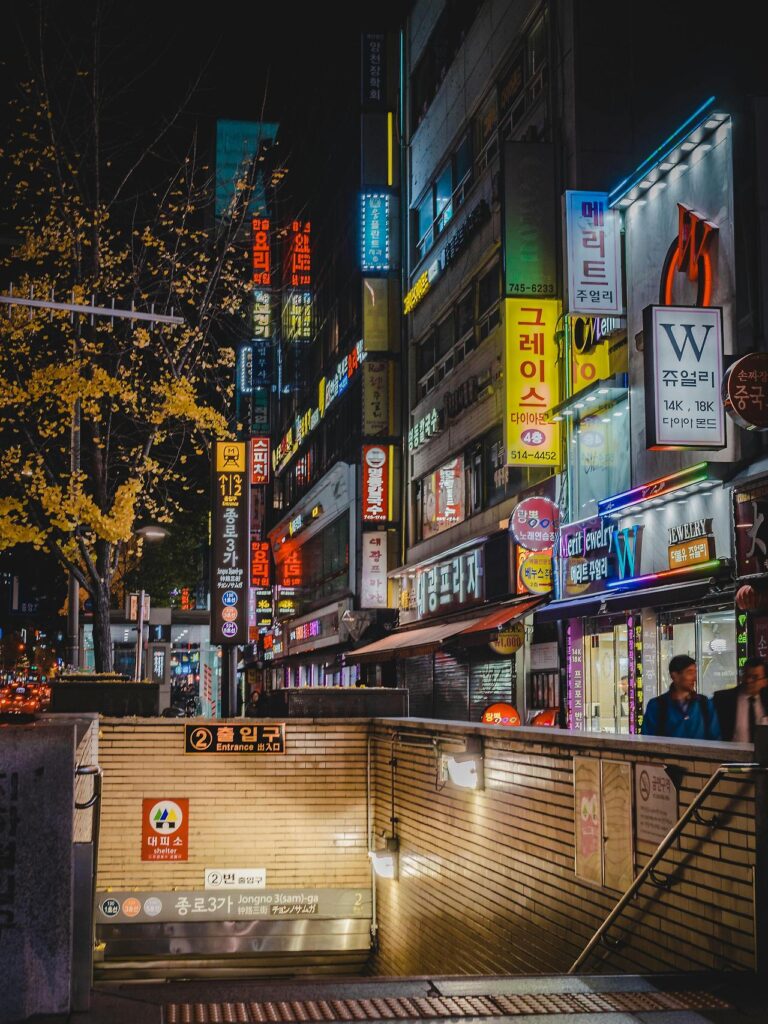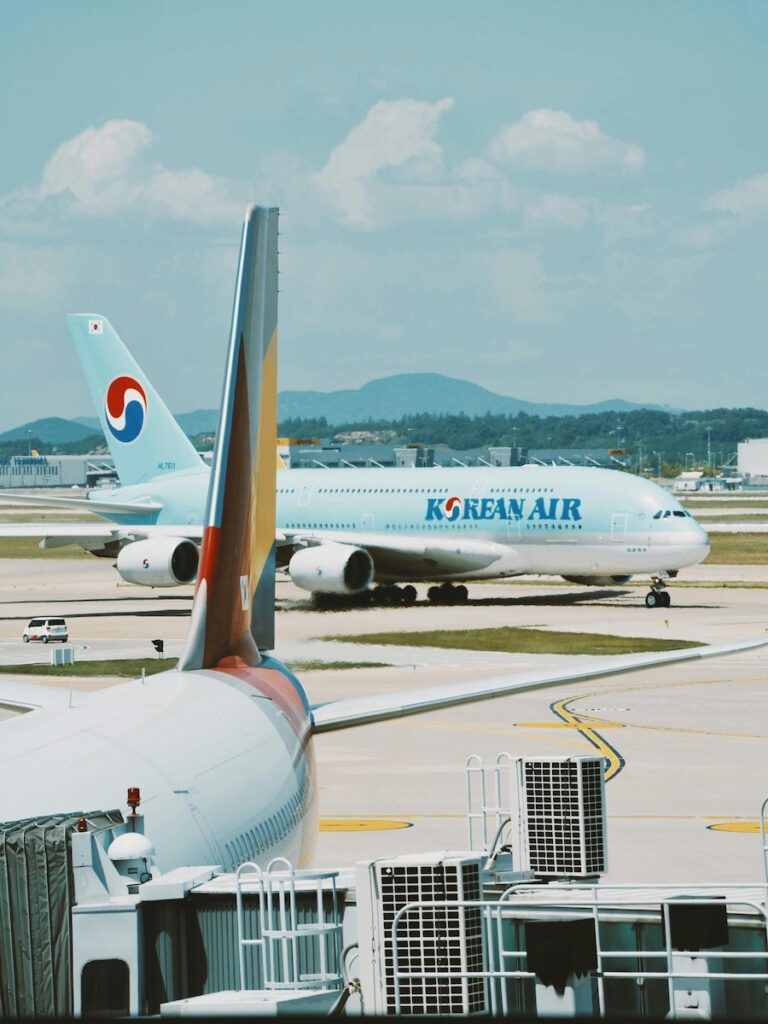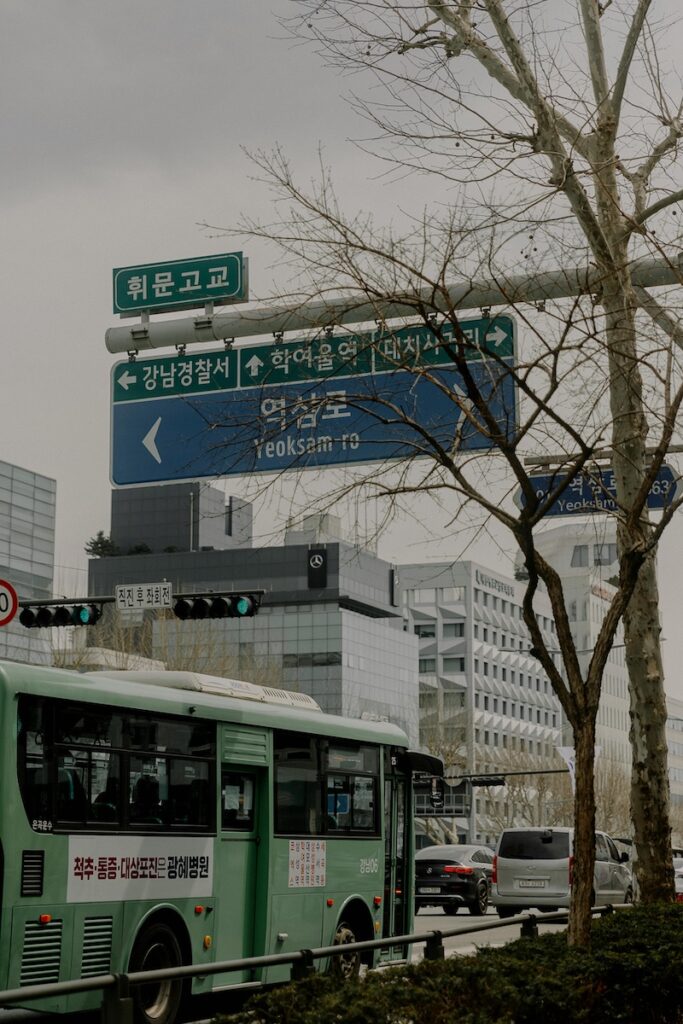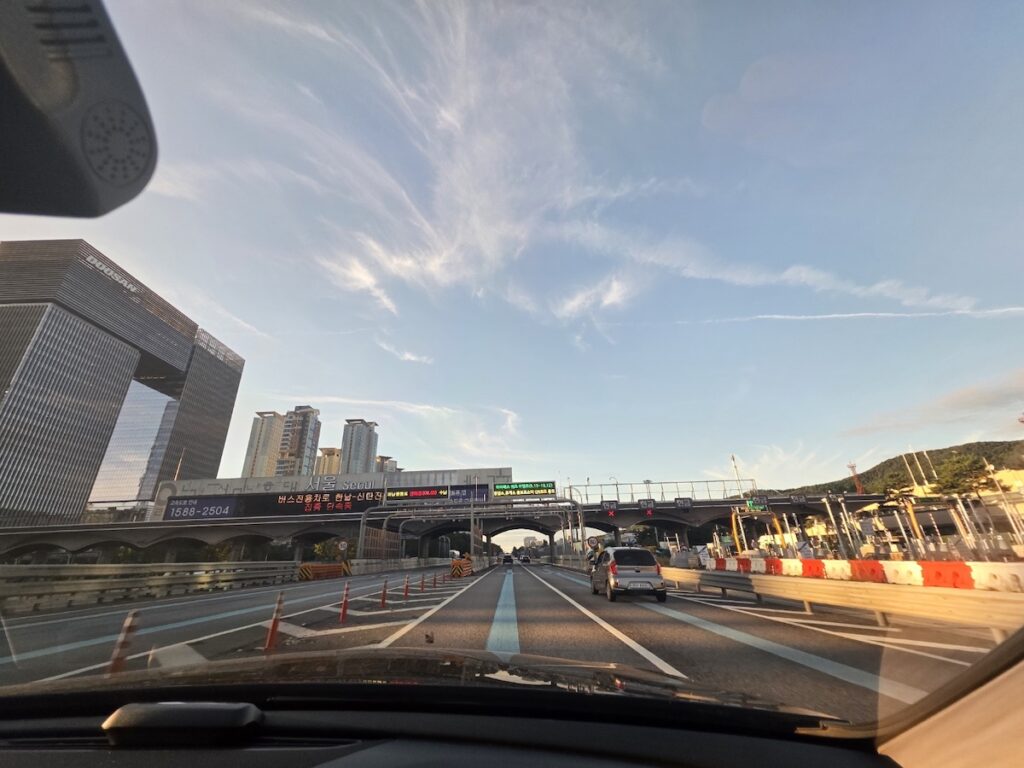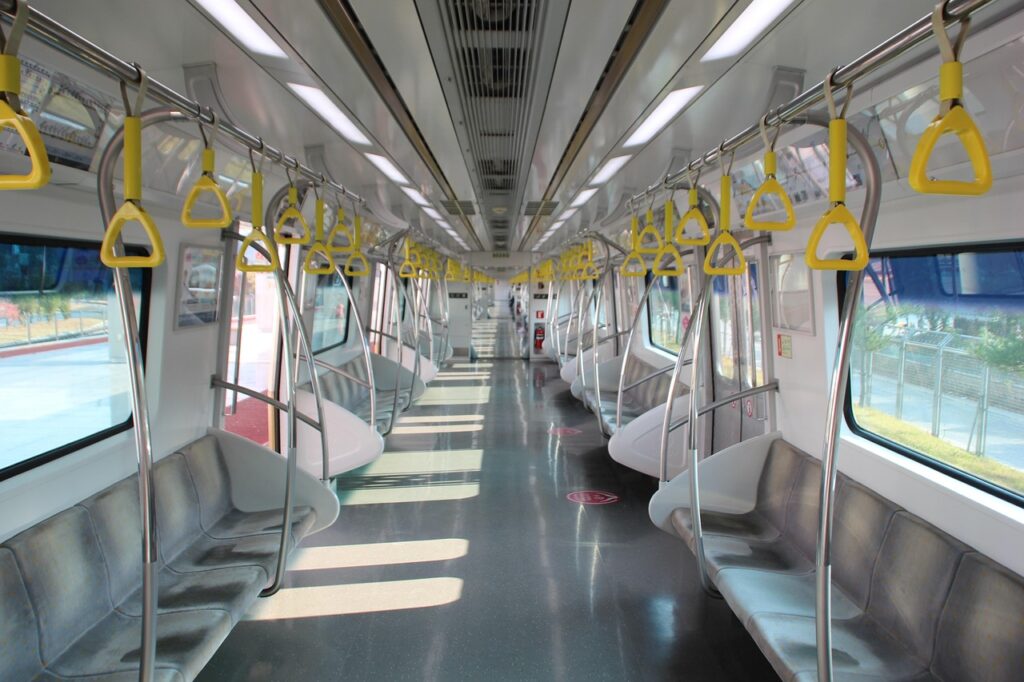✨ Introduction
Traveling around Seoul and other Korean cities is easy, affordable, and foreigner-friendly. Korea has one of the world’s most efficient public transport systems, covering subways, buses, taxis, and high-speed trains (KTX/SRT).
But if you’re new, you may wonder:
- How much is the subway fare in Seoul?
- What’s the difference between blue, green, and red buses?
- How does the T-Money card free transfer system work?
- What’s the cheapest way to travel from Seoul to Busan or Daegu?
This 2025 guide explains everything about Korean transportation — subway fares, bus routes, intercity terminals, KTX/SRT trains, and taxi tips — so you can travel like a local.
🚌 1. Seoul City Buses (Green, Blue, Red, Yellow)
Seoul’s buses are color-coded for easy use:
- 🟢 Green Buses (Maeul/neighborhood) – short local trips (~1,300 KRW with T-Money)
- 🔵 Blue Buses (trunk lines) – long routes connecting north & south Seoul (~1,500 KRW)
- 🔴 Red Buses (express) – suburban & commuter routes to Incheon/Gyeonggi (~2,800–3,500 KRW)
- 🟡 Yellow Buses – circular/tourist routes (~1,300 KRW)
👉 Payment: T-Money Card, Cashbee, or contactless credit card.
👉 Tip: Cash costs ~100 KRW more, so use a card.
🚇 2. Seoul Subway System
- Base Fare: 1,400 KRW (10 km included)
- Extra Fare: +100 KRW every 5 km
- Features: Clean, English signs, Wi-Fi, operates until ~midnight
🔄 Free Transfer Discount
- Free transfers between subway & bus within 30 minutes
- Up to 5 transfers per trip
- Must use the same T-Money card
👉 Example: Take Line 2 → transfer to a green bus → pay only distance surcharge.
🚤 3. Han River Water Taxi
Yes, Seoul has water taxis!
- Stops: Yeouido, Jamsil, Ttukseom
- Fare: 5,000–20,000 KRW
- Used mostly for sightseeing & night views (locals rarely commute this way).
🚌 4. Intercity & Express Buses
Major terminals in Seoul:
- Express Bus Terminal (Gangnam) → Busan, Daegu, Gwangju, Daejeon
- Dong Seoul Terminal → Gangwon-do (Sokcho, Chuncheon)
- Sangbong Terminal → Northern routes
Sample Fares (Seoul → Cities)
- Busan ~35,000–50,000 KRW (4h 30m)
- Daegu ~25,000–40,000 KRW (3h 30m)
- Gwangju ~25,000–38,000 KRW (3h)
- Sokcho ~20,000–28,000 KRW (2h 30m)
👉 Tickets via Kobus app or terminal counters.
🚄 5. Trains in Korea (KTX & SRT)
- KTX (Korea Train Express) – Seoul Station & Yongsan, up to 300 km/h
- Seoul → Busan: 59,800 KRW (2h 30m)
- Seoul → Daegu: 43,000 KRW (1h 50m)
- SRT (Super Rapid Train) – Suseo Station (Gangnam)
- Slightly cheaper, less crowded
- Suseo → Busan: 55,000 KRW
👉 Booking: Korail app/website or station kiosks.
👉 Budget option: ITX & Mugunghwa (slower, cheaper).
🚖 6. Taxis in Seoul
- Base Fare: 4,800 KRW (2 km)
- Extra: +100 KRW per 131m
- Late-night surcharge: +20% after midnight
👉 Use Kakao T app for safe & easy taxi booking.
💳 7. Travel Cards & Passes
- T-Money Card – works on subway, bus, some taxis, convenience stores (~2,500 KRW)
- Korea Tour Card – tourist version with discounts
- Korail Pass (KR Pass) – unlimited KTX rides for 2/3/5 days
🗺 Quick Travel Cost Overview
- Seoul → Busan KTX: ~59,800 KRW (2.5h)
- Seoul → Busan Express Bus: ~35,000 KRW (4.5h)
- Seoul → Gyeongju KTX: ~46,000 KRW (2h)
- Seoul → Sokcho Bus: ~23,000 KRW (2.5h)
- Seoul → Daegu KTX: ~43,000 KRW (1h 50m)
✅ Final Travel Tips
- Always tap T-Money for transfer discounts.
- Bus = cheaper, Train = faster.
- For sightseeing only → choose Han River Ferry instead of water taxi.
- Plan ahead with Kobus app (bus) or Korail app (train).
